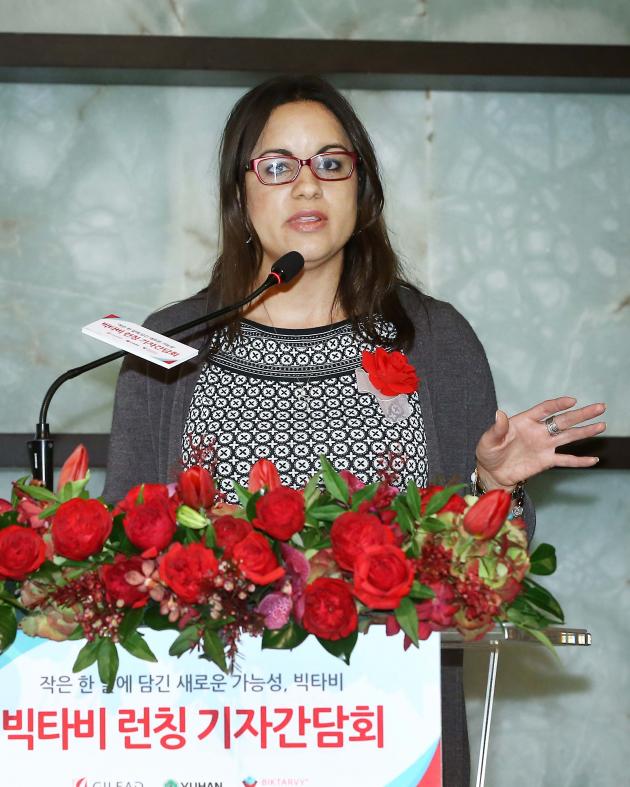Gilead Science Korea plans to lower the likelihood of treatment failure and increase compliance for domestic human immunodeficiency virus (HIV) patients with the launch of Biktarvy, the company said.

The Ministry of Food and Drug Safety approved the medicine in January, and the company expects to receive reimbursement for the drug by the end of this month.
"Biktarvy will be the new benchmark for HIV treatment as the drug is a treatment that combines all the know-how from Gilead's long-accumulated HIV treatment," said Yang Mi-sun, Gilead Science Korea's head of sales and marketing for HIV and anti-fungal business.
Biktarvy is an HIV treatment, which combines three compounds -- bictegravir, emtricitabine, and tenofovir alafenamide.
The drug can be used by adults who have no experience of receiving antiretroviral treatment, those who have had a stable suppressed viral level (HIV-1 RNA < 50 copies/mL) for at least three months with no history of antiretroviral treatment failure, and those with HIV-1 infection who have no evidence of mutations to their virus that are associated with resistance to each ingredient of the drug.
Gilead said it had confirmed the effectiveness and safety of the vaccine in four phase 3 trials on adult HIV patients.
"Regarding the 'Study 1489,' the company confirmed non-inferiority when comparing Biktarvy-treated group, and Abacavir-dolutegravir-lamivudine (ABC-DTG-3TC)- treated group," said Dr. Cynthia Rivera from the department of infectious disease at Mount Sinai Medical Center said in a news conference Tuesday. "The virus inhibition rate for Biktarvy treated group and the control group was 92.4 and 93 percent, respectively."
No drug-resistant cases occurred during the clinical study, and Biktarvy showed less drug-induced adverse events compared to the control group, she said.
She noted that Biktarvy also demonstrated efficacy in patients with HIV-1 infection who showed stable viral suppression for at least three months without failing to treat antiviral therapy.
"In changing 282 patients with HIV-1 infection who showed stable viral load suppression effect for at least three months without treatment failure to Biktarvy, only 1 percent of them had troubles suppressing the HIV in week 48," Rivera said.
Viral suppression was maintained in 94 percent of the patients and confirmed its non-inferiority compared to ABC • DTG • 3TC, she added.
Rivera stressed that Biktarvy has become one of the preferred treatment options in major countries, such as the U.S. and Europe, as the treatment is a blockbuster drug in the U.S. market after generating $114 million in sales when it was launched in 2018.
"WHO recommends treating HIV infection within seven days or as soon as possible," she said. "In reality, however, other factors that need to be considered before starting treatment may not be clear during the first week," the U.S. expert said.
With Biktarvy, patients can receive treatment even if he or she does not know hepatitis B or kidney-related levels, she added.

